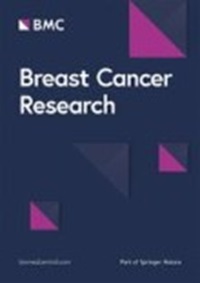Inflammation at diagnosis and cognitive impairment two years later in breast cancer patients from the Canto-Cog study
IF 5.6
1区 医学
Q1 ONCOLOGY
引用次数: 0
Abstract
Inflammation could be related to cancer-related cognitive impairment (CRCI) and might be used as a predictive marker of long-term CRCI. We evaluated associations between inflammatory markers assessed at diagnosis of breast cancer and CRCI two years afterwards. Newly diagnosed stage I-III patients with breast cancer from the French CANTO-Cog (Cognitive sub-study of CANTO, NCT01993498) were included at diagnosis (baseline). Serum inflammatory markers (IL-2, IL-4, IL-6, IL-8, IL-10, TNFα, CRP) were assessed at baseline. Outcomes at year 2 post-baseline included overall cognitive impairment (≥ 2 impaired domains) and the following domains: episodic memory, working memory, attention, processing speed, and executive functions. Multivariable logistic regression models evaluated associations between markers and outcomes, controlling for age, education, and baseline cognitive impairment. Among 200 patients, the mean age was 54 ± 11 years, with 127 (64%) receiving chemotherapy. Fifty-three (27%) patients had overall cognitive impairment at both timepoints. Overall cognitive impairment at year 2 was associated with high (> 3 mg/L) baseline CRP (OR = 2.84, 95%CI: 1.06–7.64, p = 0.037). In addition, associations were found between high CRP and processing speed impairment (OR = 2.47, 95%CI:1.05–5.87, p = 0.039), and between high IL-6 and episodic memory impairment (OR = 5.50, 95%CI:1.43–36.6, p = 0.010). In this cohort, high levels of CRP and IL-6 assessed at diagnosis were associated with overall CRCI, processing speed and episodic memory impairments two years later. These findings suggest a potential inflammatory basis for long-term CRCI. CRP may represent an easily measurable marker in clinical settings and be potentially used to screen patients at greater risk of persistent CRCI.Canto-Cog研究中乳腺癌患者诊断时的炎症与两年后的认知障碍
炎症可能与癌症相关认知障碍(CRCI)有关,并可作为长期CRCI的预测指标。我们评估了乳腺癌诊断时评估的炎症标记物与两年后的 CRCI 之间的关联。法国CANTO-Cog(CANTO的认知子研究,NCT01993498)新诊断的I-III期乳腺癌患者在诊断时(基线)被纳入研究。基线时评估血清炎症指标(IL-2、IL-4、IL-6、IL-8、IL-10、TNFα、CRP)。基线后第 2 年的结果包括总体认知障碍(≥ 2 个受损领域)和以下领域:外显记忆、工作记忆、注意力、处理速度和执行功能。多变量逻辑回归模型评估了标记物与结果之间的关联,并控制了年龄、教育程度和基线认知障碍。200 名患者的平均年龄为 54 ± 11 岁,其中 127 人(64%)接受了化疗。53名患者(27%)在两个时间点均出现整体认知障碍。第 2 年的总体认知障碍与高基线 CRP(> 3 mg/L)相关(OR = 2.84,95%CI:1.06-7.64,p = 0.037)。此外,高 CRP 与处理速度障碍(OR = 2.47,95%CI:1.05-5.87,p = 0.039)和高 IL-6 与外显记忆障碍(OR = 5.50,95%CI:1.43-36.6,p = 0.010)之间也存在关联。在该队列中,诊断时评估的高水平 CRP 和 IL-6 与两年后的总体 CRCI、处理速度和外显记忆障碍有关。这些研究结果表明,长期的 CRCI 有潜在的炎症基础。CRP 可能是临床环境中一种易于测量的标记物,可用于筛查持续性 CRCI 风险较高的患者。
本文章由计算机程序翻译,如有差异,请以英文原文为准。
求助全文
约1分钟内获得全文
求助全文
来源期刊

Breast Cancer Research
医学-肿瘤学
自引率
0.00%
发文量
76
期刊介绍:
Breast Cancer Research is an international, peer-reviewed online journal, publishing original research, reviews, editorials and reports. Open access research articles of exceptional interest are published in all areas of biology and medicine relevant to breast cancer, including normal mammary gland biology, with special emphasis on the genetic, biochemical, and cellular basis of breast cancer. In addition to basic research, the journal publishes preclinical, translational and clinical studies with a biological basis, including Phase I and Phase II trials.
 求助内容:
求助内容: 应助结果提醒方式:
应助结果提醒方式:


